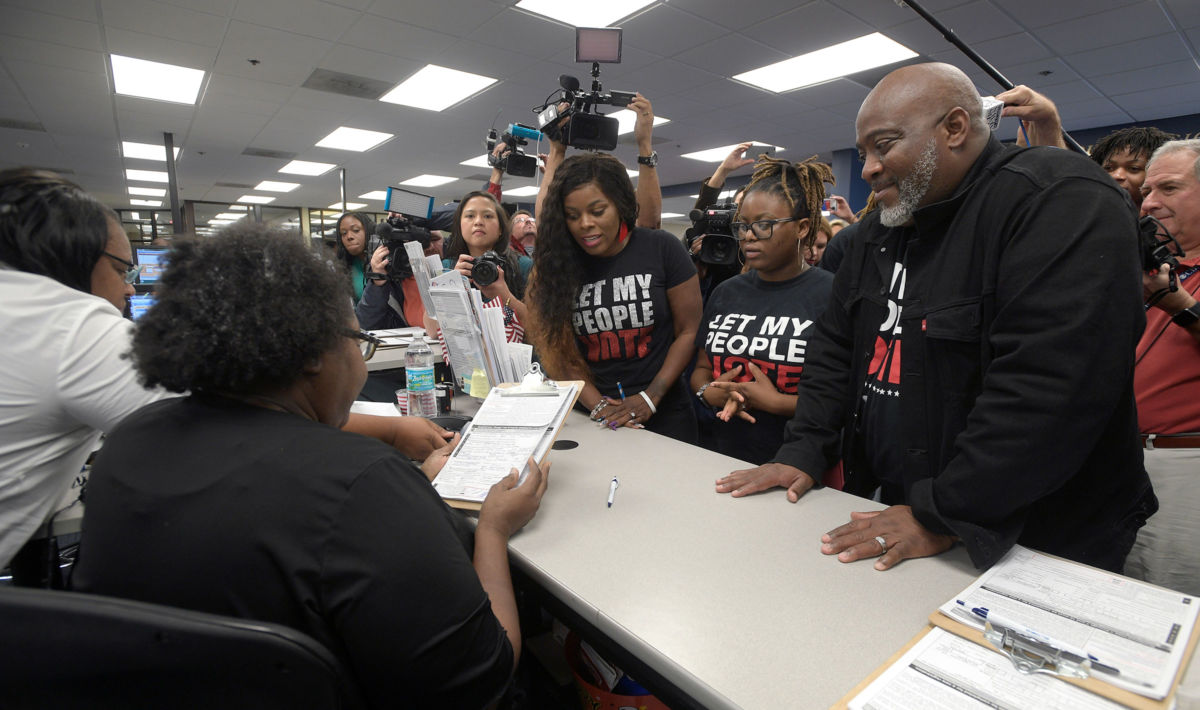On Tuesday, Florida lawmakers advanced a bill that could severely restrict one of the most impactful expansions of the right to vote in over four decades. The legislation, which passed out of the House Criminal Justice Subcommittee, is a slap in the face to the overwhelming majority of Florida voters, who voted just months ago to restore voting rights to people with past felony convictions. Now, lawmakers are attempting to make the restoration of voting rights contingent on the full payment of all fees and court costs. This would heap financial obligations on people involved in Florida’s criminal justice system and essentially reserve the restoration of voting rights to Floridians who have the financial means to pay.
In November 2018, Florida voters approved Amendment 4, a constitutional amendment that automatically restored the right to vote to more than 1.4 million Floridians who have completed their sentence, including parole or probation. It was a shining example of voters using direct democracy to expand democracy. But even though nearly 65 percent of Florida voters approved the measure, lawmakers have suggested they might limit the amendment’s reach through legislation. This week’s bill would do just that.
In fact, this new bill would make Florida’s rule regarding repayment of financial obligations even more restrictive than it was before Amendment 4’s passage. While the clemency procedure under then-Governor Rick Scott was terribly restrictive and arbitrary, it did not require the payment of all fees and costs as a condition for restoring voting rights.
As a nation, we long ago shunned the practice of making voting contingent on wealth. Unfortunately, the practice continues, as a handful of states prohibit individuals who owe court debt from voting. This practice will be particularly harmful in Florida. Since 1996, the Florida legislature has added more than 20 new categories of legal financial obligations for criminal defendants, while simultaneously eliminating exemptions for those who cannot pay. Florida’s criminal justice system purposefully levies excessive court costs and fees as a means to underwrite the state’s criminal justice costs, trapping poor Floridians in cycles of debt.
Finally, apart from being anti-democratic, this policy will be difficult to administer. Florida will have a very difficult time determining who has paid off every last penny, especially when it comes to people who completed their probation or parole decades ago. The State should not waste its resources on examining decades-old court records in order to potentially deprive someone the right to vote.
It is critical, as the bill moves to a vote before the full state House, that voters defend one of the most transformative civil rights victories—which they approved themselves—from being gutted. Florida lawmakers must protect the rights of all Floridians to exercise the franchise, regardless of their financial means.
Join us in defending the truth before it’s too late
The future of independent journalism is uncertain, and the consequences of losing it are too grave to ignore. To ensure Truthout remains safe, strong, and free, we need to raise $43,000 in the next 6 days. Every dollar raised goes directly toward the costs of producing news you can trust.
Please give what you can — because by supporting us with a tax-deductible donation, you’re not just preserving a source of news, you’re helping to safeguard what’s left of our democracy.
